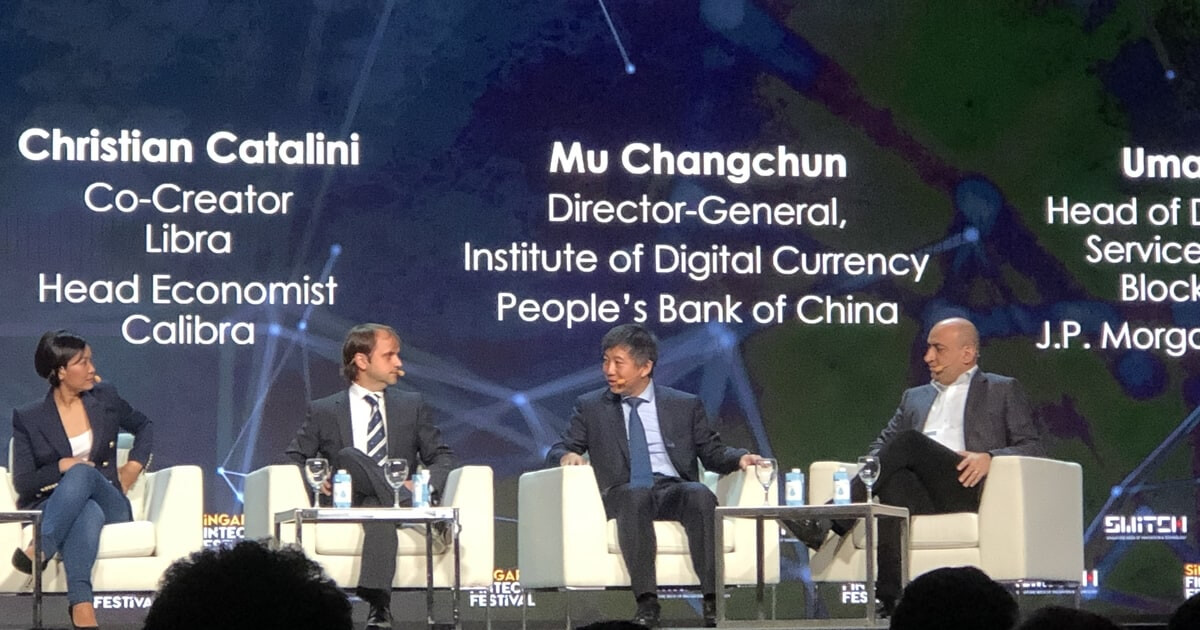China’s Central Bank’s DCEP is Trying to Make WeChat Pay and Alipay Redundant
Sarah Tran Nov 12, 2019 08:00
Mu Changchun, the Director-General of the Institute of Digital Currency of China’s central bank, People’s Bank of China spoke at one of the panels at the Singapore Fintech Festival held at the Singapore Expo on Nov. 12 regarding the future of digital currencies.

Mu Changchun, the Director-General of the Institute of Digital Currency of China’s central bank, People’s Bank of China, spoke at one of the panels at the Singapore Fintech Festival held at the Singapore Expo on Nov. 12 regarding the future of digital currencies.
Mu made a comment regarding China’s central bank digital currency (CBDC), also known as the digital currency electronic payment (DCEP), saying that they are “trying to provide redundancy to our very advanced electronic payments” including WeChat Pay and Alipay.
The reason behind the comment was due to the potential risks the central bank foresees if there would be any technical difficulties with these electronic payment entities, there would be detrimental harm to the financial ecosystem. Mu added that this move was to “prepare for anything bad to happen,” given that 96% of China’s population is using electronic payment systems.
Mu briefly introduced the two-tiered system that the CBDC will be running on and noted that commercial banks will be in the loop. He also highlighted that the CBDC is targeting cross-border payments and the M0 - which refers to the Chinese Yuan fiat in circulation.
He lastly mentioned that China will be keeping the monetary policies and implementations untouched, as well as the financial system. The CBDC is a hybrid of an account-based system and a value-based system. He concluded, “we are not aiming to be a cashless-society, but rather a cash-light society.”
Image source: Shutterstock
.jpg)